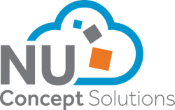NU Concept Blogs

ERP Transformations: Generic vs industry-specific
A key decision when choosing an ERP system is whether to go for a generic or an industry-specific option...
ERP (Enterprise Resource Planning) software systems help businesses integrate data and manage aspects of their operations, such as finance, HR, and supply chain management.
One of the key decisions to be made when embarking upon an ERP transformation project is the ERP system itself. Companies will evaluate the choices based on several key criteria such as upfront and maintenance costs, core functionality, scalability, ability to integrate with existing systems, customisation options and vendor support.
But, one key factor that is often not explored enough is whether to go for a generic ERP system or an industry-specific option.
Whilst Oracle and SAP produce ERP systems that are amongst the most reliable and robust systems in the world, they may not be the system of choice for all organisations for a variety of reasons.
For some enterprises they may be overkill in terms of functionality and complexity and initial costs may be very high. But there’s also the fact that generic systems like Oracle Cloud Fusion, SAP S/4HANA and Microsoft Dynamics D365 out-of-the-box systems are designed to offer core ERP functionality to medium and large enterprises regardless of the industry in which they operate.
This means that a construction or manufacturing firm for example would need to spend significant time, effort and money on customising the software to meet their business needs. And whilst such systems allow extensive configuration, customisation and integration capability with other systems, it is likely that customers will still need to adapt their business processes to fit the solution.
So, what alternatives need to be considered when choosing an ERP system for your business?
Industry-specific ERP
There are several well-established Cloud-based ERP systems which are designed by niche vendors for organisations that operate in a particular industry.
They include the same key features as generic systems: accounting, finance, human resources, supply chain and inventory management and business intelligence etc. but also carry features that target the unique needs of the industry.
Their capabilities and functionality are pre-configured, out-of-the-box to support the standard processes for such industries as:
- Construction
- Engineering
- Manufacturing
- Utilities
- Professional Services
- Healthcare
- Non-Profit
- Education
- Public Sector
Implementation of these systems will generally be faster, less costly and require less customisation.
Here are some examples of industry-specific ERP systems currently in use by medium and large enterprises across a variety of verticals.
| ERP Solution | Client Base (Global) | Cloud/On premise Options | Industries |
| Infor | 70,000+ | Both | Fashion, Aerospace and Defence, Automotive, Distribution, Food and Beverage, Industrial Manufacturing |
| Deltek | 30,000+ | Both | Construction, Engineering, Marketing, Consulting, Project-driven Businesses |
| IFS | 10,000+ | Purely Cloud | Construction, Engineering, Energy, Utilities, Manufacturing, Service Management |
| Microsoft D365 | 20,000+ | Both | Manufacturing, Financial Services, Healthcare, Retail |
| Epicor | 20,000+ | Both | Distribution, Manufacturing, Building Supply |
| Unit4 (formerly Agresso) | 6,000+ | Both | Professional Services, Public Sector, Non-profit and Education |
Pre-customised generic ERP
This refers to generic ERP systems which have been pre-customised to fit a particular industry’s requirement by a vendor partner. An example of this is Bevica, an ERP product for the drinks industry built around Microsoft D365 Business Central.
Industry-specific applications
It is also worth being aware that many industry-specific applications are available such as Oracle Retail and Oracle Food and Beverage and the recently released Oracle Banking Cloud Services. These applications are designed to facilitate the workflows in specific industries but are not complete ERP systems in themselves.
NU Concept Solutions is a technology-focused recruiting firm.
We source candidates for all major ERP solutions. Get in touch with us today Email us at
